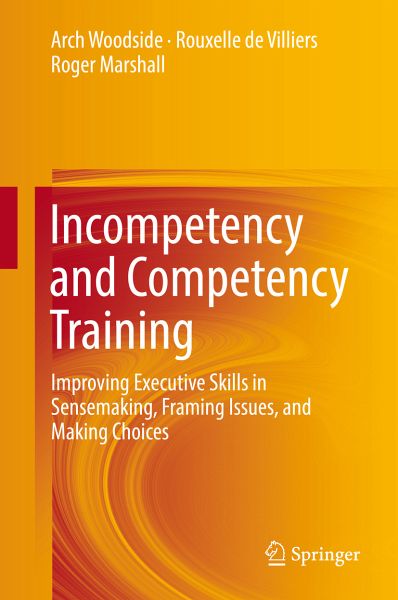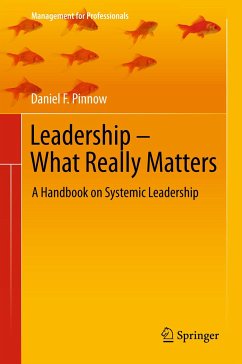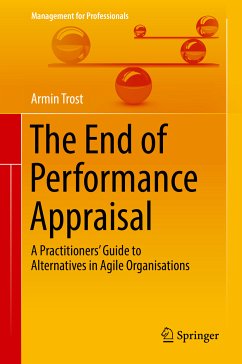
Incompetency and Competency Training (eBook, PDF)
Improving Executive Skills in Sensemaking, Framing Issues, and Making Choices
Versandkostenfrei!
Sofort per Download lieferbar
72,95 €
inkl. MwSt.
Weitere Ausgaben:

PAYBACK Punkte
36 °P sammeln!
This book covers theory and practice of competency and incompetency training. 'Incompetency training' includes formal and informal instruction that consciously (purposively) or unconsciously imparts knowledge, attitudes, beliefs, and behavior (including procedures) that are useless, inaccurate, misleading, and/or will lower performance outcomes of the trainee versus no training or training using alternative training methods. This book offers an early workbench model of incompetency training theory which proposes that executives and associates in firms, academia, and government organizations co...
This book covers theory and practice of competency and incompetency training. 'Incompetency training' includes formal and informal instruction that consciously (purposively) or unconsciously imparts knowledge, attitudes, beliefs, and behavior (including procedures) that are useless, inaccurate, misleading, and/or will lower performance outcomes of the trainee versus no training or training using alternative training methods. This book offers an early workbench model of incompetency training theory which proposes that executives and associates in firms, academia, and government organizations consciously as well as unknowingly offer incompetency training in many contexts. The evidence so far has shown that increasing trainees' vigilance and ability to recognize exposure to incompetency-training may help trainees to decrease the effectiveness (impact) of exposures to incompetency training-advancing incompetency training theory and knowledge of incompetency training practice may be necessary conditions for remedying negative outcomes that follow from trainees receiving such training. The book uses a series of laboratory experiments to elicit on tools advocated in the literature as aids in increasing incompetency and/or competency, and provides a comprehensive review of the literature on (in)competency training.
Dieser Download kann aus rechtlichen Gründen nur mit Rechnungsadresse in A, B, BG, CY, CZ, D, DK, EW, E, FIN, F, GR, HR, H, IRL, I, LT, L, LR, M, NL, PL, P, R, S, SLO, SK ausgeliefert werden.












